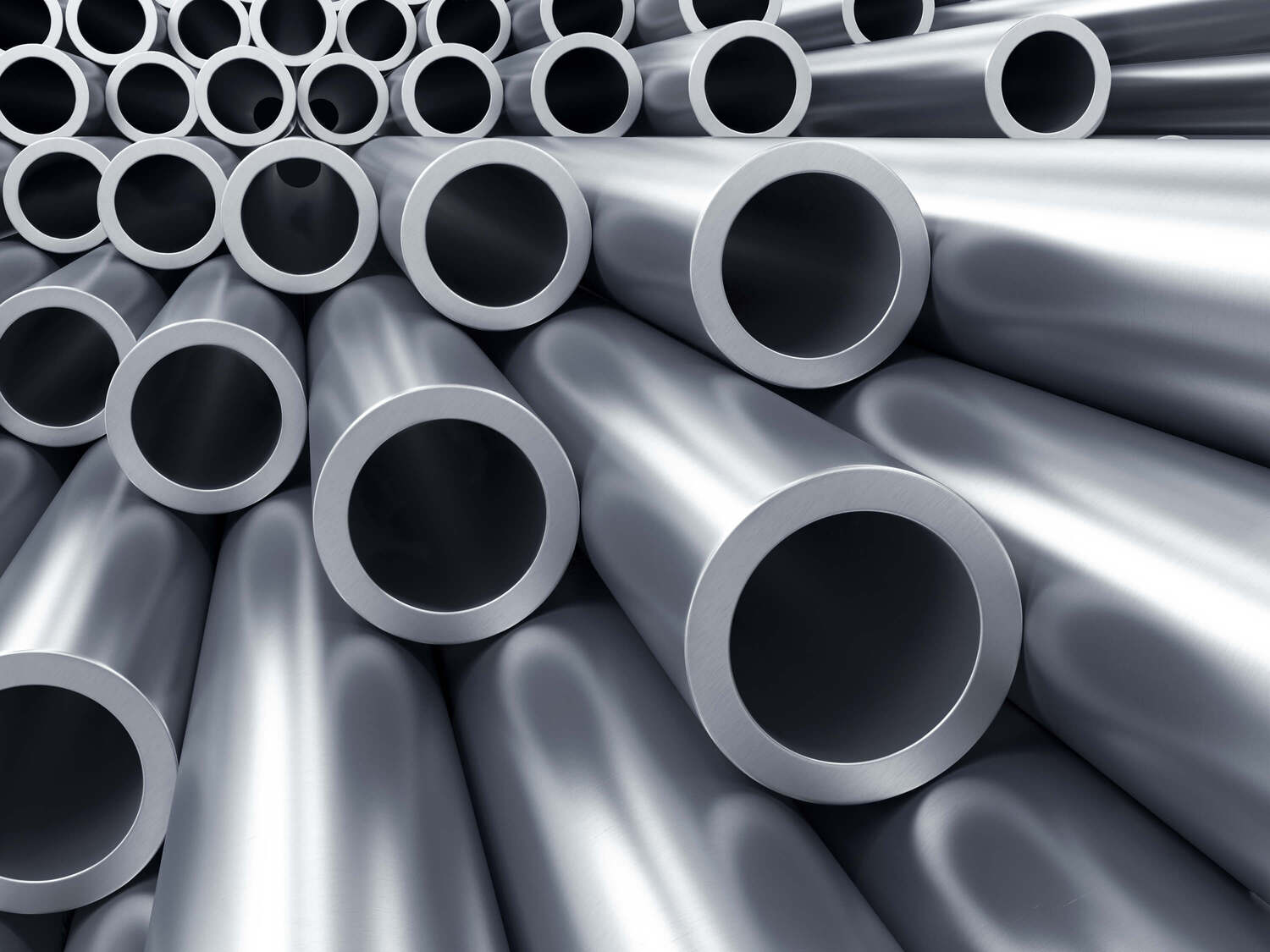
You can find alloy steels in tools, components, and end products across numerous industries. Learn more about steel alloys and their applications below.
What is alloy steel?
Steel alloy is a metallic material made primarily of iron (Fe), carbon (C), and other varying alloying elements. Alloying elements such as manganese (Mn), chromium (Cr), nickel (Ni), and molybdenum (Mo) are added to steel to enhance its properties, such as strength, hardness, corrosion resistance, and heat resistance.
What is the composition of steel alloy?
Steel alloy composition refers to the specific combination and proportion of elements in a steel alloy. The primary component of steel is iron (Fe), and carbon (C) is typically added in varying amounts to impart strength and hardness.
What are the different types of steel alloys?
Steel alloy is primarily iron (Fe) and carbon (C). However, adding other alloying materials can create different types of alloys, such as:
- Low-Alloy Steel: Low-alloy steel contains small amounts of other alloying elements (besides carbon), such as manganese, silicon, or copper. It offers improved strength, toughness, and wear resistance while maintaining good weldability and formability.
- High-Strength Low Alloy (HSLA) Steel: HSLA steel is a type of low-alloy steel with higher strength and improved mechanical properties compared to conventional carbon steel.
- High-Alloy Steel: High-alloy steel refers to a group of steels that contain a significant amount of alloying elements such as chromium, nickel, or molybdenum. These elements contribute to the steel’s exceptional resistance to corrosion, heat, and wear.
- Stainless Steel: Stainless steel contains a minimum of 10.5% chromium to form a passive layer on the surface, providing excellent corrosion resistance. Stainless steel is popular among various industries, including construction, automotive, and food processing.
- Advanced High-Strength Steel (AHSS): AHSS is a group of steels designed to exhibit exceptional strength, formability, and crash resistance. AHSS is popular in the automotive industry.
- Maraging Steel: Maraging steel is a high-strength, low-carbon alloy steel known for its exceptional toughness and strength-to-weight ratio. Maraging steel is helpful in aerospace applications, tooling, and high-performance engineering components.
- Tool Steel: Tool steel is a specialized type of alloy steel designed for the production of cutting tools, molds, and dies. Tool steel is available in various grades, such as high-speed steel (HSS) and die steel, each tailored for specific tooling applications.
What are the different properties of steel alloys?
Steel alloys exhibit excellent strength and durability, making them suitable for applications that require high resistance to heavy loads and impact.
Some steel alloys, such as stainless steel, also have a higher resistance to corrosion, which protects the material from rust and degradation in harsh environments or when exposed to corrosive substances.
Finally, steel alloys are malleable and can bend to meet specific requirements by adjusting the composition of alloying elements. This malleability allows for numerous properties, such as hardness, toughness, heat resistance, and formability, making steel alloys highly versatile for various applications.
How is alloy steel used?
Alloy steel has numerous applications across various industries, including construction and infrastructure, where its strength and toughness make it a suitable material for structural components like beams, columns, and bridges.
Alloy steel also plays a vital role in the automotive and aerospace industries, where its strength-to-weight ratio helps produce lightweight and durable components.
The tool and die-making industries almost exclusively use alloy steel for its hardness, heat resistance, and ability to retain its sharpness. Alloy steel is often employed to produce molds, dies, and other precision instruments.
How are steel alloys used in machine fabrication?
Many manufacturers rely on alloy steel for its superior strength and durability. Alloy steel’s toughness ensures reliable performance even under heavy loads and extreme conditions. These materials exhibit high hardness, toughness, and heat resistance, making them suitable for applications that involve cutting, punching, or bending metals.
Alloy steel has excellent wear resistance properties that allow it to withstand abrasive forces and minimize the need for frequent replacements.
Aside from reducing maintenance costs, alloy steel also offers versatility in terms of composition, allowing for the creation of tailored components to meet specific requirements and ensure optimal performance and precision.
Precision Machine Fabrication’s Metal Fabrication Contract Manufacturing
Alloy steel is an incredibly versatile material that can meet a wide range of needs across various industries. From construction and aerospace to tool-making and machine fabrication, its superior properties, such as strength, toughness, and corrosion resistance, make it an ideal choice for numerous applications.
Alloy steel offers durability and reliability while providing a range of customizable options to suit specific requirements and ensure optimal performance and reduced maintenance costs.
Discover how alloy steel can benefit your machine fabrication project! Contact PMF today and see how our trusted team can unlock the limitless possibilities of high-strength, durable components for your project.


View Our Work
